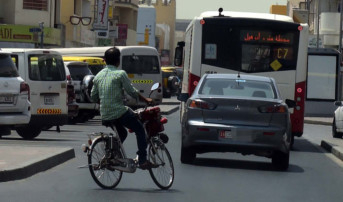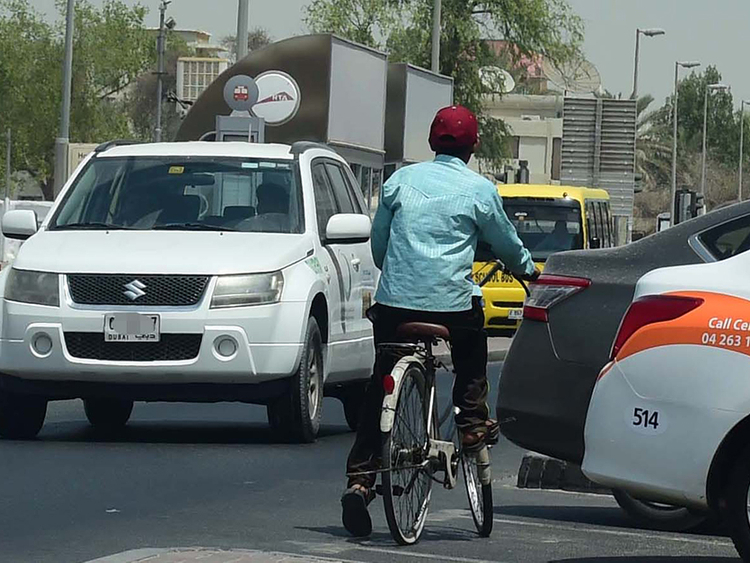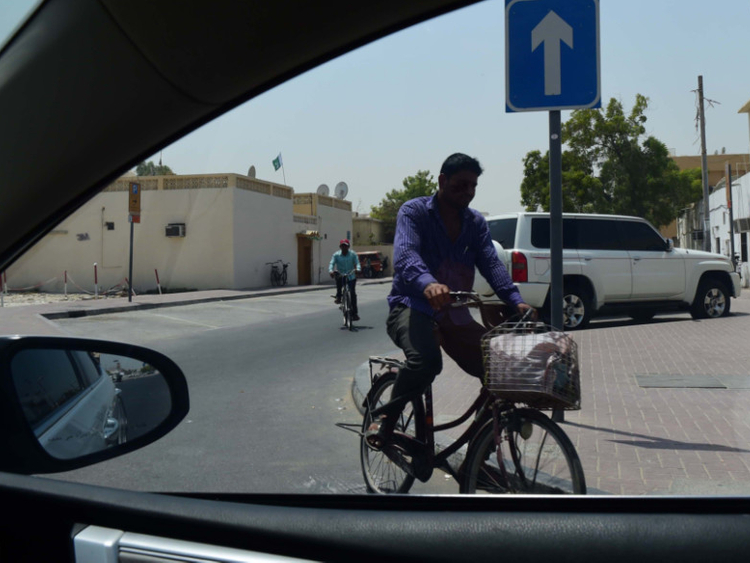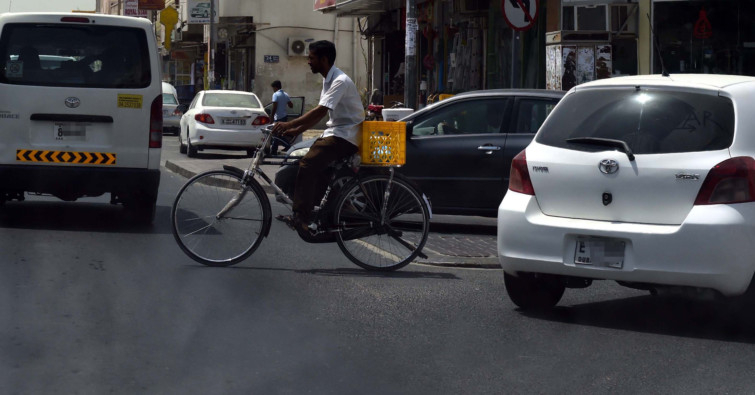
Dubai: Motorists in Dubai are calling for strict action against cyclists who they say are violating basic traffic safety rules and posing risks to their as well as others’ lives.
In areas like Al Riqqa, Naif, Abu Hail, Satwa and Karama, where a huge number of low-income workers are using bicycles as a cost-efficient mode of transport to deliver items or reach their destinations, motorists say the cyclists are violating basic traffic and safety rules by not wearing any safety gear and disrupting traffic.
Cyclists are also seen riding against the traffic, by moving through spaces between vehicles and crossing roads from non-designated areas, which is also endangering others.
“There should be a fresh crackdown on cyclists violating traffic rules and regulations to avoid road accident fatalities. In Abu Hail, where I have rented a flat, there is not enough space for cyclists to ride because of narrow roads and they are not obeying any rules or being mindful of motorists. I almost hit a cyclist the other day crossing the road and it was not the first time,” said Jaber Mohammad from Iraq.
According to Dubai Police, in the first half of 2016, there were nine accidents involving bicycles which resulted in 11 injuries. During the same period last year, there were 15 accidents with three deaths and 17 injuries.
Based on Resolution No. 10 of 2015 regulating the use of bicycles in Dubai, cyclists are obliged to use dedicated bicycle tracks, and not use roads with speed limits exceeding 60km/h and tracks dedicated for runners and walkers. Bikers must also abide by safety and security measures defined by the Roads and Transport Authority (RTA), and not carry another passenger unless the bicycle and second passenger have the required safety features and gear.
Farah Nassour from Syria, who cycles for recreational and fitness purposes in Al Mamzar, where a cycling track is available, said many areas in Deira are not suitable for cycling.
“The absence of dedicated bike lanes in these areas makes it difficult to cycle. I have noticed many using bicycles on the road to deliver items or travel home are not obeying the rules by not wearing a helmet or a florescent jacket. They also cycle next to curves where motorists can easily hit them,” she said.
Police have constantly stressed the importance of wearing a helmet for protection from head injuries. Also, light reflectors must be fitted on the front and rear of the cycle. During the night, fluorescent jackets must be worn to enable motorists to see the cycle and the cyclist in the dark and avoid collision.
They have also warned cyclists from moving among cars, weaving in and out of heavy traffic, jumping the red light, and recklessly taking a U-turn or cycling in the opposite direction of traffic. Police have also launched campaigns before to confiscate bicycles ridden on main roads.
Mohammad Safa from India, living next to Gold Souq, said he has an issue with cyclists driving on the footpath because they often speed and can hit pedestrians.
“I don’t see any cyclists in this area following any rules or wearing safety gear. It is safer for them to cycle on the footpath but, then again, it becomes dangerous for us if we are walking.”
Workers who use their bicycles on the road to pick up and drop things or travel to their work and back said they depend on their bicycles for a living and use it for everything others would use a car for.
Shiv Kumar, an Indian carpenter, said he cannot afford public transport for short trips and uses his bicycle to travel a couple of kilometres.
“I try my best to follow rules and to be on the right side. Sometimes there is no space on the road so I have to use the footpath. I use the metro only for long-distance travel.”
Virendra Varma, who works as a cleaner, said he uses his bicycle to travel from his home to work. “I have been using it for five years and instead of walking for 30 minutes, I use it to zip down narrow roads. I never break the rules and haven’t been fined before. I realise that others jump red light or drive in the opposite direction (of traffic),” said the 40-year-old Indian.











